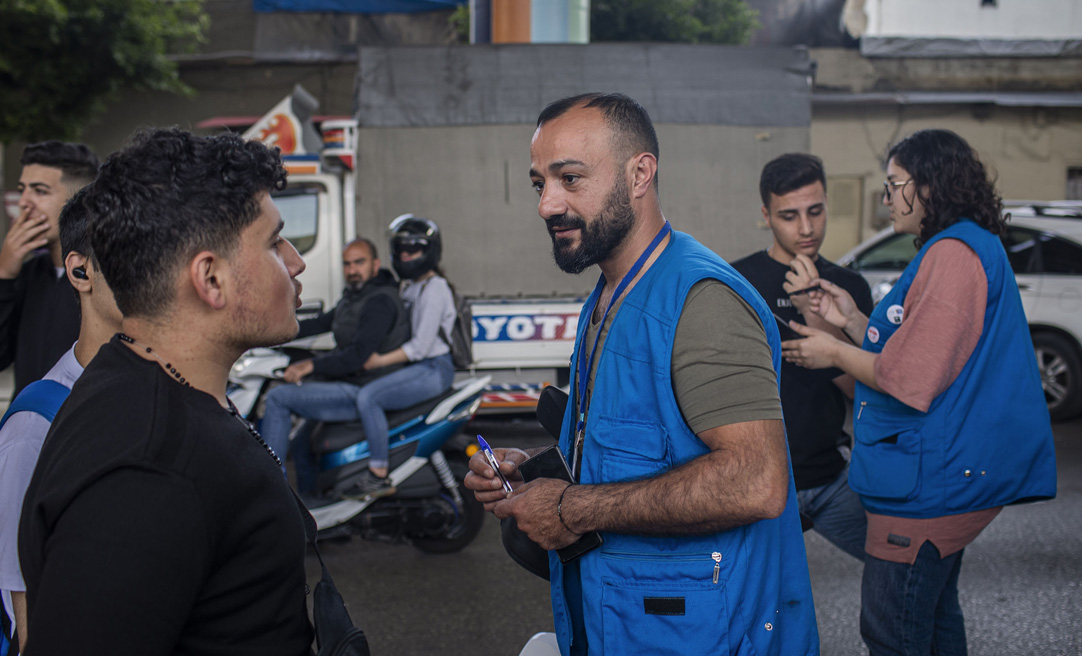
Outreach workers from SIDC share sexual health information with passers by in Beirut, Lebanon.
©Frontline AIDS/Diego Ibarra Sanchez/2023
Improved national laws and policies that respect, protect and fulfil the rights of the most marginalised
Civil society increasingly holding governments, donors and the private sector to account – examples from 11 organisations
Sustainable, inclusive and evidence-informed national government responses
Most marginalised experience less violence, are safer and are more supported by communities and duty bearers – 10 examples
people reached with mental health interventions
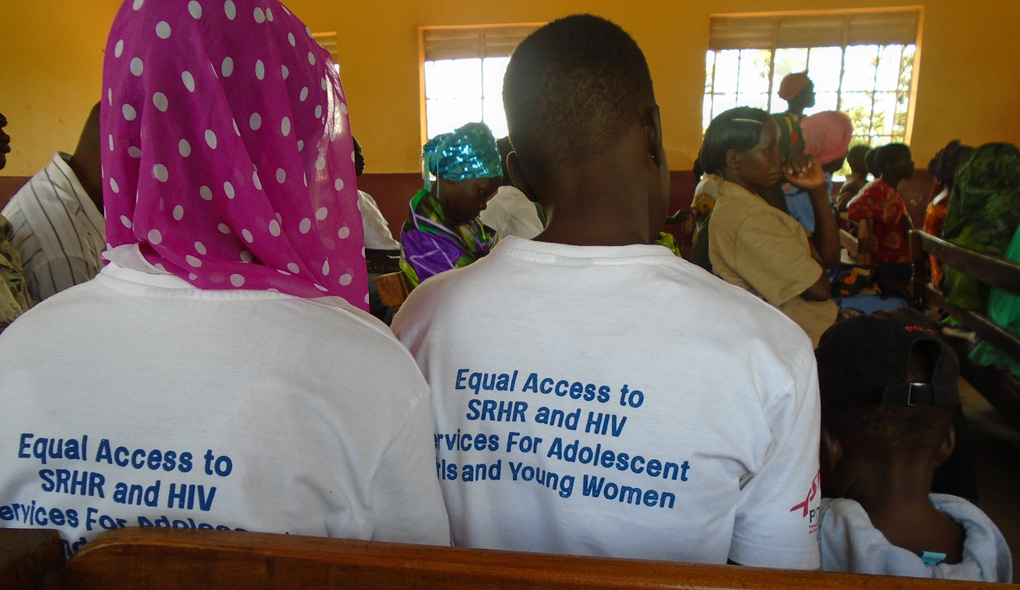
“I wish someone had to talked to me about my sexual health - I wouldn’t have ended up pregnant and unprepared at such an early age.”
Youth-friendly services in Uganda designed and implemented by youth.
© Naskmariz/Frontline AIDS/PhotoVoice/2018
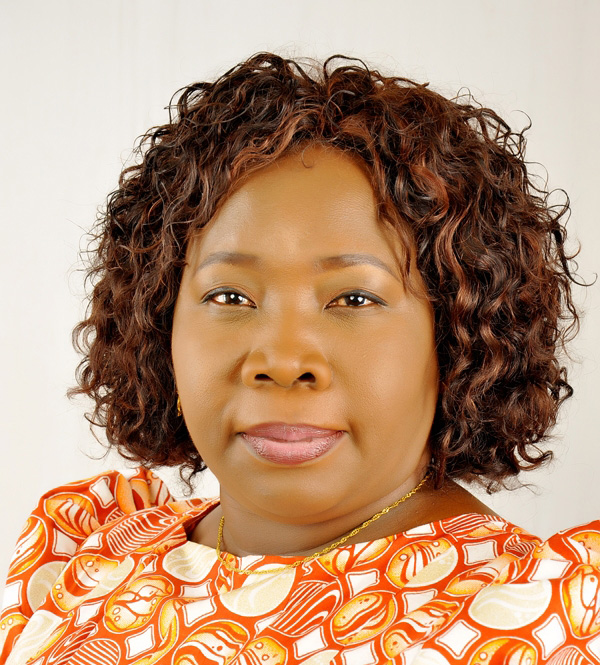
“We are extremely grateful for a meaningful and great partnership with Frontline AIDS. It is really doing development differently, engaging partners in decision making and finding solutions together.”
Dr Pasquine N. Ogunsanya, Alive Medical Services, Uganda
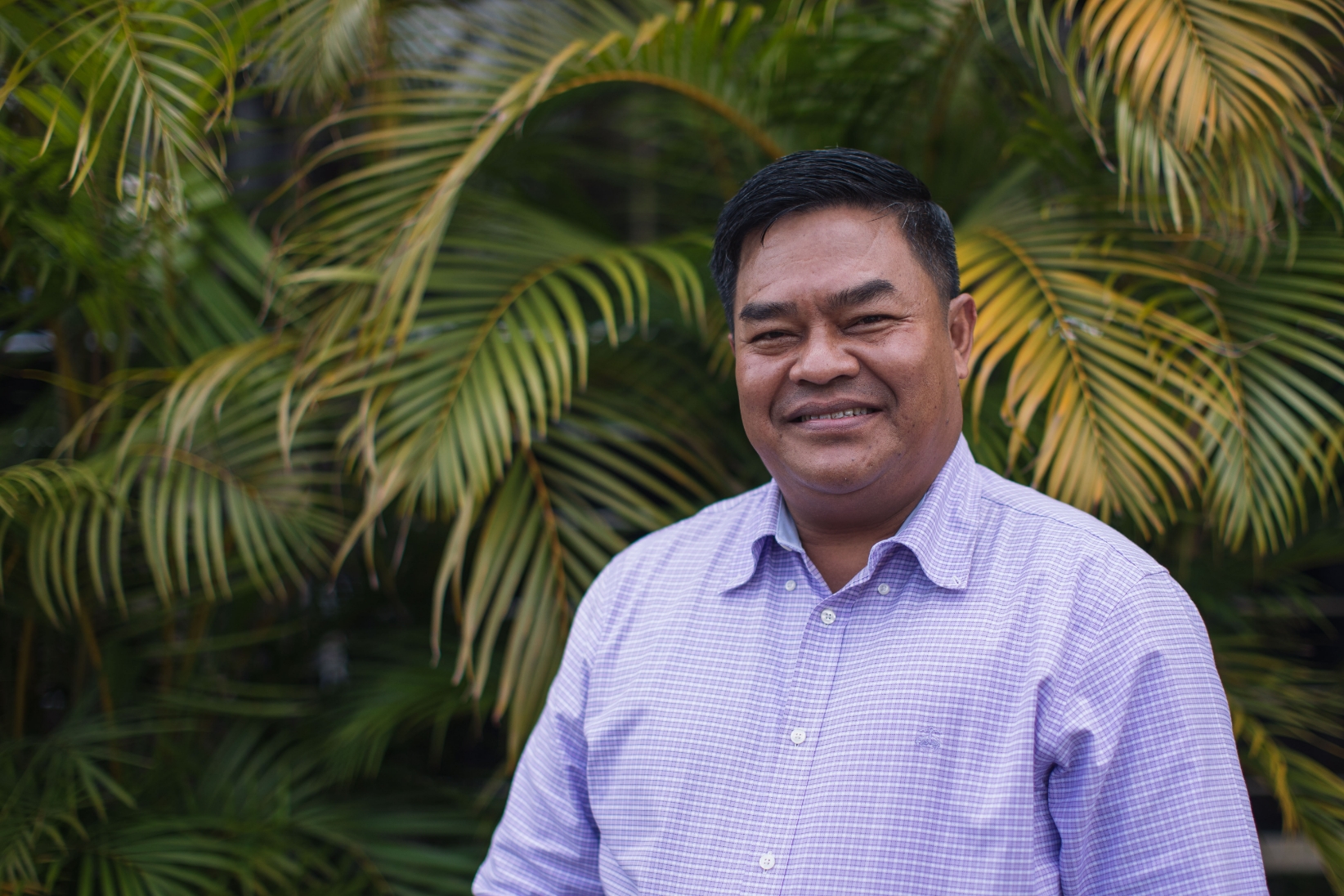
“We have been working together for more than 25 years and the partnership is very important to us. […] It means that if I don’t have experience of a specific aspect of good practice there might be someone else, in Ecuador or Ukraine for example, who does. Through partnership we can support each other and we can share our experience and processes with stakeholders, including government.”
Choub Sok Chamreun, KHANA, Cambodia
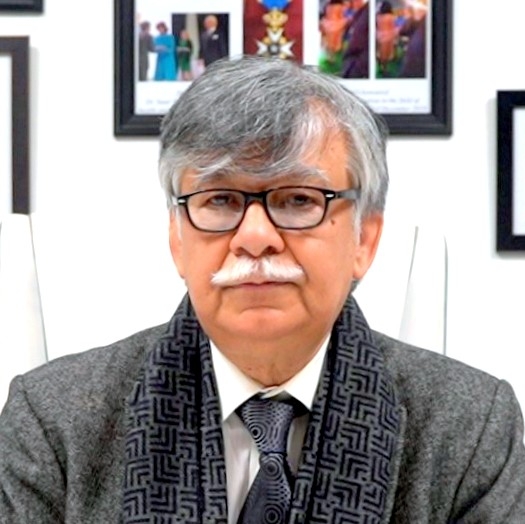
“There’s no substitute for collective working – and this Partnership Council brings us together. We can see that people from different regions are often having similar problems and we can work together to solve them, sharing our insight and understanding.”
Dr Sunil Mehra, MAMTA, India
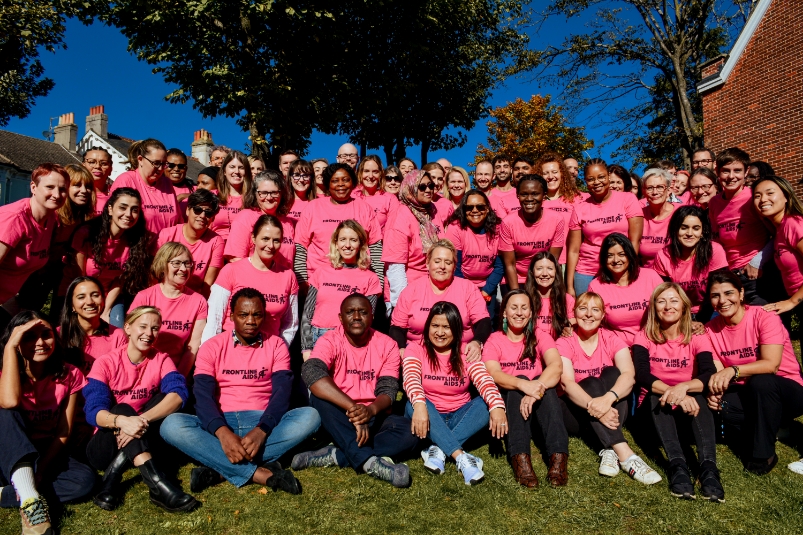
Frontline AIDS employees pose for a photograph at staff conference.
© Frontline AIDS/Allie Liu/2022
We recognise that becoming an anti-racist organisation is a journey, and in 2022 we continued to hold ourselves accountable and work towards this goal, recognising the need for systemic change.
In 2022, Frontline AIDS conducted an anti-racism survey to evaluate staff experiences of the anti-racism work that had taken place and to measure any changes from 2021 levels of staff understanding, sentiment, and confidence.